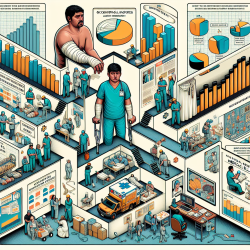Understanding the Link Between Self-Esteem and Alcohol Use
Recent research has uncovered a fascinating link between relationship-contingent self-esteem (RCSE) and alcohol-related problems, particularly in college students. This study delves into how RCSE, a form of self-esteem that is dependent on one's romantic relationships, can lead to increased stress and impaired control over alcohol consumption, ultimately resulting in alcohol-related issues.
Key Findings from the Study
The study, titled Does Relationship-Contingent Self-Esteem Play a Role in the Stress to Impaired Control Pathway to Alcohol-Related Problems in a College Student Sample?, reveals that individuals with high RCSE are more likely to experience stress, which in turn affects their control over alcohol consumption. This impaired control can lead to heavy episodic drinking and other alcohol-related problems.
Implications for Practitioners
For therapists and mental health practitioners, these findings highlight the importance of assessing self-esteem dynamics in clients, particularly those struggling with alcohol use disorders (AUDs). By understanding the role of RCSE, practitioners can tailor interventions to address these underlying issues.
Here are some practical steps practitioners can take:
- Assess the level of RCSE in clients and explore how it impacts their stress levels and drinking behaviors.
- Incorporate strategies that promote non-contingent self-esteem and emotional grounding into therapy sessions.
- Use motivational interviewing and cognitive behavioral therapy to help clients develop healthier coping mechanisms.
Encouraging Further Research
While this study provides valuable insights, it also opens the door for further research. Future studies could explore how RCSE affects different demographic groups or investigate the long-term effects of RCSE on alcohol use. Additionally, examining the role of other psychological factors, such as anxiety or depression, could provide a more comprehensive understanding of the pathways to alcohol-related problems.
Conclusion
The link between RCSE and alcohol-related problems underscores the complexity of self-esteem and its impact on mental health. By addressing these issues, practitioners can help clients achieve better outcomes and reduce the risk of developing AUDs. To read the original research paper, please follow this link: Does Relationship-Contingent Self-Esteem Play a Role in the Stress to Impaired Control Pathway to Alcohol-Related Problems in a College Student Sample?










